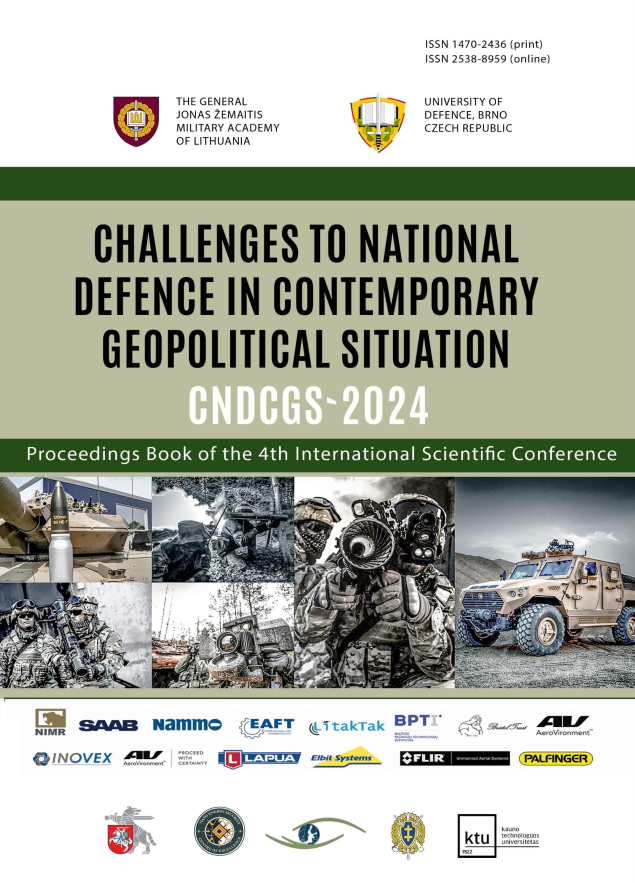Specific consequences of using WMD: Radioactive contamination of foodstuffs and its potential health effects
DOI:
https://doi.org/10.3849/cndcgs.2024.603Keywords:
Weapons of Mass Destruction, food, radioactive contamination, ingestion, long-term effects, population safety, committed effective dose, Chernobyl, FukushimaAbstract
The excessive presence of radionuclides in foodstuffs can potentially pose health risks. Under normal conditions, the content of radioactive substances in food is very low, resulting in only a small fraction of the total dose caused by natural radiation. This may be substantially different in the case of radiological accidents or terrorist attacks, resulting in increased levels of radioactivity in the environment, which may contribute significantly to the radioactivity of food. The situation must be monitored to assess the contribution of internal exposure coming from ingesting contaminated food. The paper discusses the occurrence of radioactivity in various foods, including its origin and effect on the total population exposure due to radioactive contamination of the environment following the use of WMDs (Weapons of Mass Destruction). To minimise the potentially harmful consequences of such events, the radioactivity in food has to be controlled. The probability of threats of possible radiological attacks in the contemporary geopolitical situation has recently increased.
References
Downloads
Published
Issue
Section
License
Copyright (c) 2024 CNDCGS

This work is licensed under a Creative Commons Attribution-NonCommercial-NoDerivatives 4.0 International License.
All rights preserved. No part of this publication may be reproduced, stored in retrieval system, or
transmitted in any form or by any means, electronic, photocopying, recording or otherwise, without the
permission of the Publisher.





